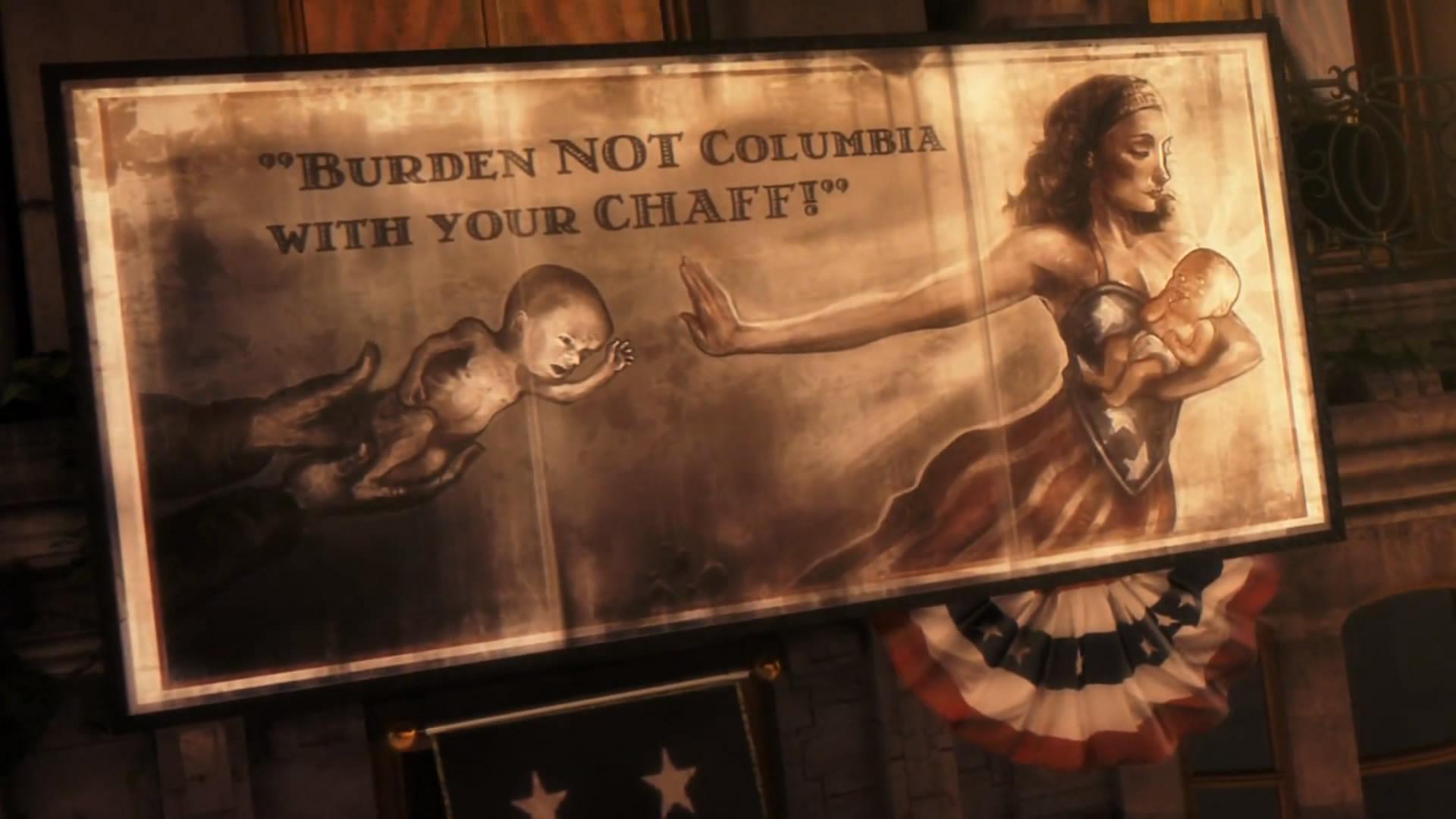Poor Community Spirit

Being a community of a lot of people well-off enough to lavish themselves with the latest games, gaming culture is often a space that does not care in the slightest about anyone left behind. Only through arduous effort and after decades of invisibility, issues of gender, race and sexuality are slowly becoming ingrained in the landscape’s larger geography.
But within the medium and how we talk about it as a whole, the enormous subject of class is seldom broached since it is largely believed that poor people don’t play games.
As a critic by trade, gaming communities and social media form an integral part of my day-to-day functions. Twitter especially holds a wealth of ideas: subjects to write about, knowledge about games I’d never otherwise play, conversations and perspectives I’d have never otherwise considered. If I want to write about games, it’s vital for me to read critiques and breakdowns, and to discover what games are doing in experimental corners of the industry. For my profession I am invested in the area – I need to know what’s there.
Nevertheless, being a game critic does not often net a huge amount of money. Shocking, I know.
When Bioshock Infinite was released earlier this year, hubbub bubbled over this and that – its dealings with racism, its status as a shooter and so on. Having finished and loved BioShock 2 only earlier this year, I was fierce eager to get my hands on Infinite at some point. The tag of 60 Euro for a game at launch is no small thing for someone strapped for cash – waiting months or years until the price drops is a far more sensible approach without the resulting guilt.
As more and more people picked Infinite up in the weeks after release chat flowed more freely; most eliciting of all was the big juicy BioShock™ twist, which the majority were kind enough to keep off their tongues.
But before long the moratorium began to expire.
With the zeal of open conversation, I was worried that waiting so long would risk the game getting spoiled for me. When it comes to something for which I’m already excited, I find to experience it first vicariously through the opining of others makes for a slanted and insincere perspective when I finally get my hands on it. As I love games, I love to enjoy them on my own, rather than as a vestigial limb of some pundit who had already coloured my experience. As a critic, I’d rather not be another person’s mouthpiece.
The longer I waited with Infinite, the more I feared I would miss my opportunity.
Knowing I was pressured so, after only a few weeks my wonderful girlfriend bought Infinite in spite what was, for us, the hefty cost. In the end we finished it and agreed it was more or less shite. Certainly not worth the cost of admission.
Straddling the line between being a professional and a hobbyist is always a bit of a balancing act in media criticism, but common courtesy makes it easier to opt into or out of conversations of a spoilery nature. When courtesy fails, as it often does when it comes to issues of class, gender, sexuality, and race, the environment grows divisive. It is common to disregard those lagging behind on the latest releases as not really interested, or not really important in the conversation, and if something gets spoiled it is their own fault for not playing it sooner. This includes those people without the money to buy it because the job market is fucked, those too tired after working all day who can’t speed through a game in a week, etc.
Consequently these spaces can be alienating and hostile to people who are not financially privileged.
I’ve been told to “leave the internet” until I spontaneously achieve the level of wealth that would warrant my re-entry. I’ve been told I’m simply not as important as someone’s desired availability to talk freely and without responsibility. My value as an individual and a critic only extends so far as it doesn’t inconvenience my betters.
There’s a fantasy that we’re all part of a universalized spirit in our consumption of media, the sanctity of which is worth excising a few troublemakers. All this really does is further legitimizes the cultural stratification already in place, comforting the privileged with the thought that their media consumption represents greatness.
This same attitude seeds further problems. Back in the day, the opportunity to rent games and consoles allowed me to get into the hobby in the first place. Growing up we didn’t have much money, so the ability to access a large library of games at a lower cost was a godsend. Over the years my rapport with the medium was only kept afloat through my brothers and myself sharing discs with one another.
Now I’m at a point where games are my profession, and I wouldn’t be able to say that if those avenues into the medium hadn’t existed. With the abolition of used games and growing connectivity requirements. I can only imagine how many families are going to get cut out of the hobby.
For some, a cost of entry for the hobby is a good thing, as it facilitates exclusivity and restricts the gamer identity to an elite few. To them, gaming is more a status, an emblem of luxury; peasants need not apply. Greedy, the industry is eager to feed into that temperament, adding more paywalls and telling those stinky povs to get a second job. Bedazzled, journalists are complicit so long as it provides a smoother user experience, cost be damned. The culture has so convinced us of our entitlement and pushed out the troublemakers, few see the classism in our digital future. To me, the fight against used games is a fight against people.
 When Microsoft reversed their policies restricting used games on the Xbox One, the eruption of victory was centred on the abstraction of property ownership, rather than accessibility. As Twine and Unity do for developers, lower entry points for technology and software opens up games as a medium for millions of people. And while I personally may have internet access in my living room, there are many others for whom always-on mandates means total exclusion.
When Microsoft reversed their policies restricting used games on the Xbox One, the eruption of victory was centred on the abstraction of property ownership, rather than accessibility. As Twine and Unity do for developers, lower entry points for technology and software opens up games as a medium for millions of people. And while I personally may have internet access in my living room, there are many others for whom always-on mandates means total exclusion.
Folks who wouldn’t dream of dismissing matters of race and gender with a “deal with it” or “you’re just grumpy” are not shy to fling hurtful comments when it comes to matters of class. Accessibility doesn’t just mean providing a user interface that’s intuitive for newbies – it’s also being open to the possibility that gaming can be a viable platform for groups other than the old guard.
Whenever I hear the typical retort that gaming is a luxury, all that I can think of is that other apologist mantra: “women don’t game.” We lowly peasants are already here – you just don’t recognise us because you’ve shamed us into silence.
Leveraging people’s economic contexts against their worth in the community only serves to exclude and Other a whole class of folk who already have enough on their plates. This is often purported to be an escapist hobby – so why make it unavailable to those who could do with the break?

6 Comments
Very interesting article. A couple of related thoughts:
1) Spoiler culture doesn’t just make assumptions about economic class. It also makes assumptions about people’s availability. Anyone who has kids, for example, or dependent parents can’t drop everything and spend their weekend playing through Bioshock Infinite. The assumption that everyone who matters can drop £40 on the new release and finish it within a few days paints a picture of game players as commitment free as well as rich.
2) The presumption that the conversation is basically over a few weeks after release also does a massive disservice to the medium. It assumes that games are fundamentally consumables which lose their relevance/value after a few weeks or months. It is also a presumption which is I’m sure rooted in the way that the games conversation has evolved out of the commercial industry’s marketing cycle (although it is thankfully more diverse now). That conception of ‘games as product’ is in itself highly class-sensitive.
3) Finally, and apologies for the long comment, if is also worth mentioning that there is a place for spoilers: that place is in writing about games from a deeper, more critical perspective. In the same way that you would not suggest writing an analysis of a poem without assuming familiarity with the text, it is a good thing that people write about games in modes that assume familiarity as well as in the (far more common) mode of reportage and comment on the event-game du jour. However, it goes without saying that such writing should always be signposted clearly as spoilerific.
Hi psepho, you’re totally right that there are a million reasons why a person might not get to enjoy a highly-anticipated game for months: they might be frequently sick and wrapped up in bed; they have to tend to the kids since they can’t afford a nanny; too tired after working all day; too much time and money dedicated towards their dependants; too busy at night courses; occupied with a long, draining commute; no game shop is locally convenient, etc. etc.
I would venture, though, that most of the problems could be solved by throwing money at them, except it’s money most people can’t afford.
I didn’t mean to imply the conversation ends so soon after a game is launched, rather that it becomes increasingly difficult to enjoy the game ‘fresh’ and, as a critic, remain relevant, as many dismiss you from the conversation by having simply not played the game. On the other hand, I remember one time someone commented to a Dark Souls feature of mine published months after the game had come out that the piece was redundant because it was so late. But certainly articles get read more when the buzz is still about.
Lastly, (don’t worry about your comment running long, I appreciate the discussion :-)…
absolutely there’s a place for spoilery conversations! Completely! But, like you say, it ought to be gated by spoiler warnings so that people know what’s coming and have the opportunity to opt out.
Pingback: CHRISZAMANILLO.COM » July 14th
Pingback: This Week in Video Game Criticism: From animation to unsung heroines » Gaming News Alerts
Pingback: Navel gazing « Normally Rascal
Thank you so much for writing this, I thought no one in the gaming industry had similar experiences when it came to these issues. I’ve always loved video games as a child, but now it’s one of the hobbies I spend the most time on.
My family didn’t much money when I was a kid, but my mom managed to save up some cash and got my siblings and I a Nintendo GameCube about 2 years after it came out. We couldn’t afford many games for the system, so most of the video games I have played over the years came from rental stores or sometimes were used games. Rental stores were also the only way I was able to get into the hobby. Unfortunately, only 1 rental store remains in my city and I’m not sure if I can even rent games there.
I still cannot afford many games I wish to buy for my ps3 when they come out, and I am afraid of getting spoiled. I know my circumstances aren’t usually the case with most gamers, and I wish that more people online were to tag or warn in the start of the article that there may be spoilers from the game.
I’m sorry about the incredibly long post, but I’m so glad I can talk to another gamer who understands the economic/financial challenges some gamers face.